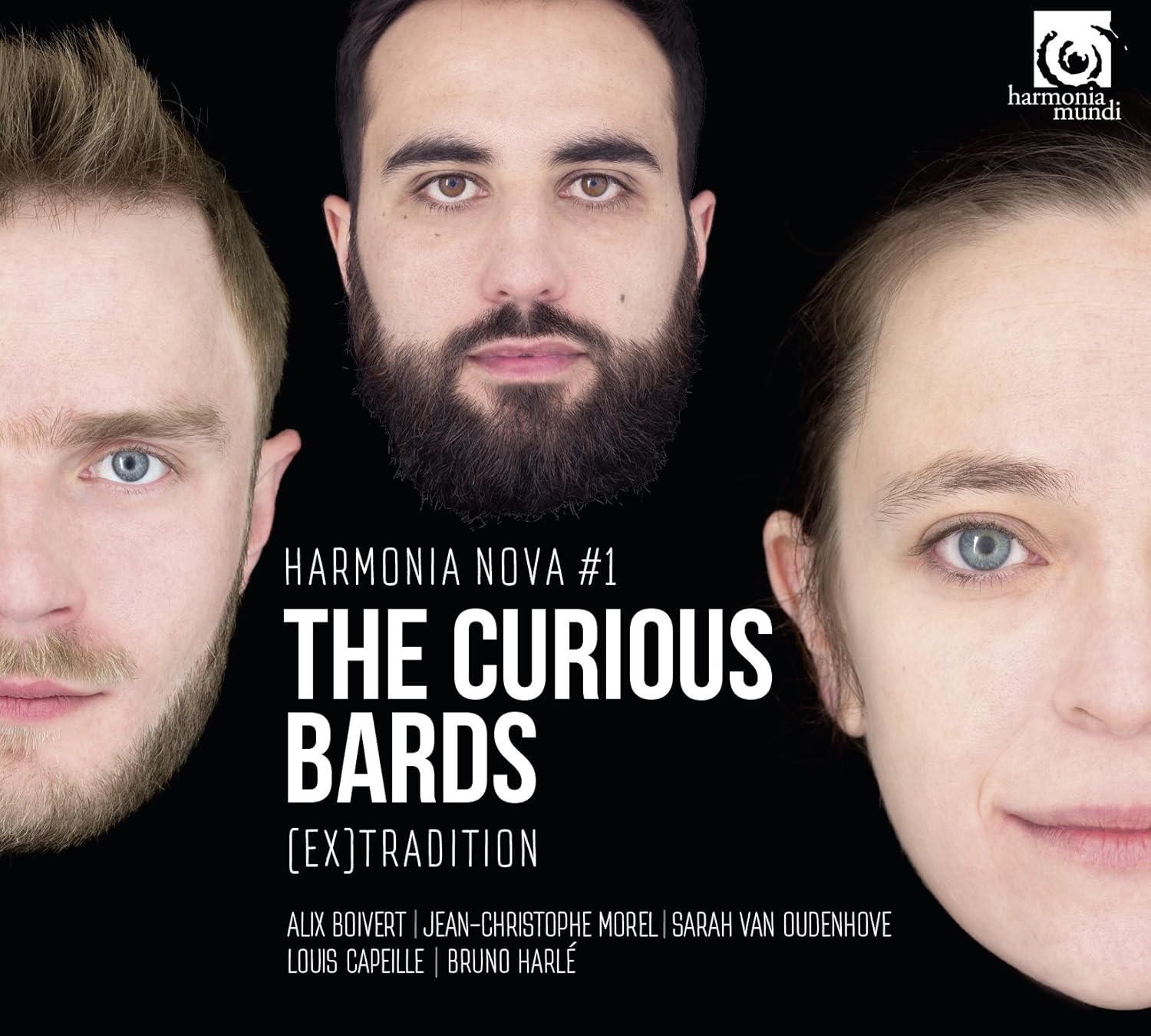(Ex)Tradition
The Curious Bards
Traditional & Popular Music of 18th-Century Ireland & Scotland
Harmonia Mundi (harmonia#nova) HMN916105. 62’47

The Curious Bards was founded in 2013 by musicians from the music conservatories of Lyon, Paris and Basel, sharing an interest both in early music and traditional Irish, Celtic and Gaelic music. They aim to unite these musical worlds through research and historical musical discoveries. For this CD, they use a range of instruments including triple harp, violin, viola da gamba, a transverse flute, a tin whistle, and a cittern specially constructed by William Gibson for this recording, based on a 1778 Irish original in Dublin’s Collins Barracks Museum, part of the National Museum of Ireland.
The Curious Bards are Alix Boivert, violin, Jean-Christophe Morel, cittern, Bruno Harlé, transverse flute/tin whistle, Sarah Van Oudenhove, viola da gamba, and Louis Capeille, triple harp. For this recording, they are joined by singer Ilektra Platiopoulou. They are among the beneficiaries of the EEEmerging Project which supports young early music ensembles and is run by the Ambronay Festival, under the Creative Europe Programme of the European Union.
The music comes from some of the many 18th-century manuscripts and publications, from a time when Scottish and Irish music was particularly popular. These include James Oswald’s 1750 Caledonian Pocket Companion and Thompson’s 1770 Hibernian Muse. The compositional style uses relatively simple melodies and rhythmic structures and, on this recording, falls into four groups – dance tunes, slow wordless ballads, variations, free-form songs. The Curious Bards have sensibly grouped the smaller pieces into sets, reducing 28 pieces into 14 tracks, sometimes segueing nicely into each other. One example is the link between track 4 and 5, the Irish air Since sounding drums running straight into the longest piece, the 8-section Highland Battle. They use particularly effective instrumental colours, the only slight weakness, for me, is the vocal style of their occasional singer.
The recording issues under the harmonia#nova series, which offers young artists a technical, editorial and promotional showcase, with the recording philosophy produced by the musicians themselves. The CD comes in a simple card cover with slots for the CD and notes, which are in French and English, the latter presented in faded white lettering on a black background making it almost illegible. Fortunately, the booklet is available in a more readable pdf form here. Some of the comments in the programme notes are perhaps questionable, one being that music of eighteenth-century Ireland and Scotland has been “practically forgotten today” whereas, in fact, there have been a number of recordings and performances of this repertoire.
